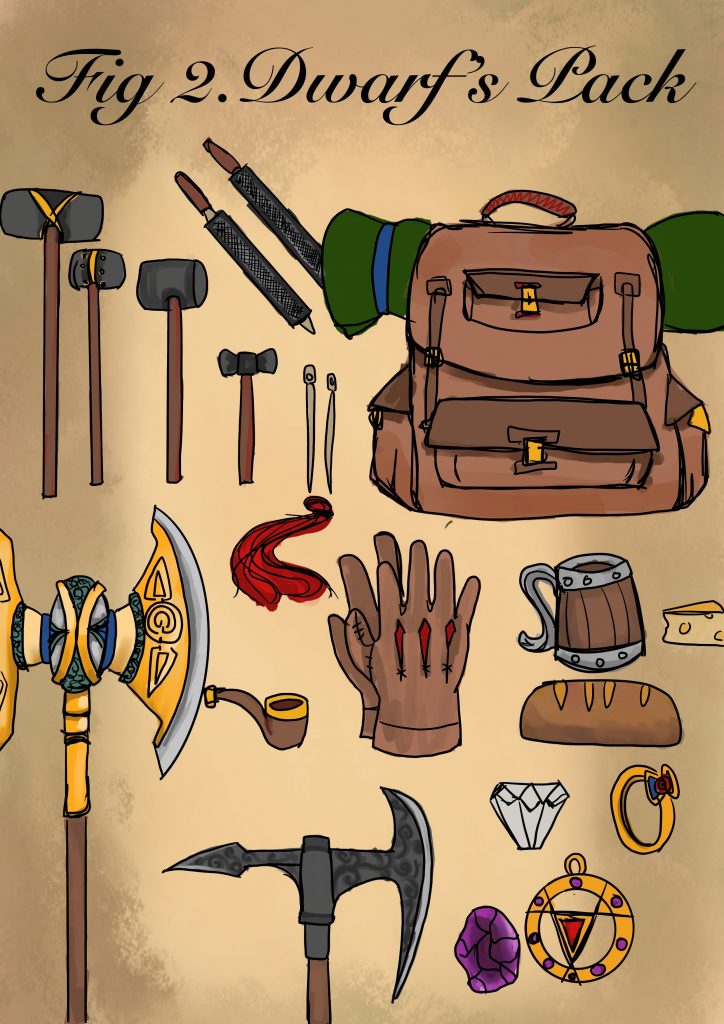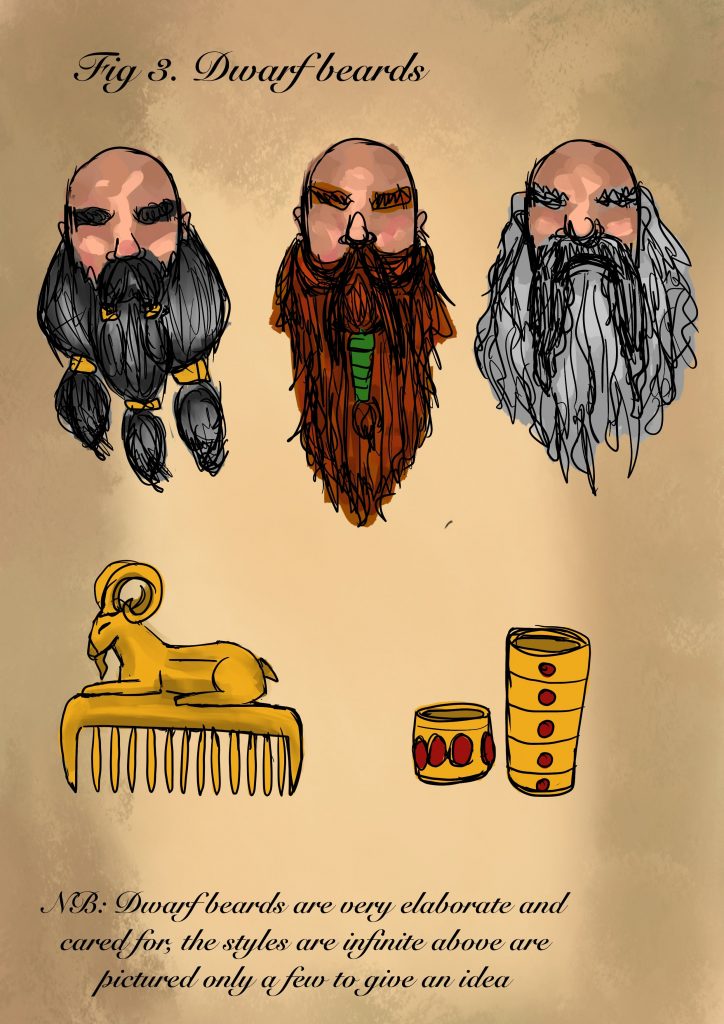
Did Female Dwarves Have Beards, too?

Old English dweorh, dweorg (West Saxon),” very short human being, person much below the ordinary stature, whether of proportionate parts or not,” also “supernatural being of subhuman size,” The word Dwarf comes from old German and refers to the supernatural beings, rather than the humans who have a growth challenge
Dwarfs are mainly a Nordic and Germanic creature, with the Celts not really using that word to refer to them. Due to this, there are not so many different versions of dwarfs. And their myths and legends seem to contain mainly similar themes. They are quite consistent in their descriptions, all dwarfs live underground and are associated with metalwork. They are also considered to be deformed in height and covered with hair. They interact less with the humans then the elves do, instead, often interacting with the Nordic gods and goddesses in their aspects as metalworkers and guardians of mountains.

The dwarves of Middle Earth were humanoid, usually short and often hairy a. As ‘dwarf’ was probably another name for the Norse ‘black elves’, they were dark coloured. Although dwarves were short, they were said to have superhuman strength. The Norse credited them with having the attributes of a knight, i.e. they were warriors. Dwarves were usually bearded.
Dwarves typically lived in hollowed-out mountains and their occupations were mining and smithing. They were reluctant donors of artifacts with magical qualities. Dwarves were long-lived, stubborn and loyal, but grudge-bearing. They were very hard working and disciplined.
The modern English word “dwarf” comes from the Old English “dweorg” which came from the Norse “devergr”. It is generally thought that dwarves were actually another name for the Norse black elves, as both species were described in the medieval Norse text, Prose Edda, as living in Svartalfaheimr.
It is presumed that Middle Earth had female dwarves, but these were hardly ever mentioned. From this we presume that they looked very similar and couldn’t be told apart by other species.

Our story collector was staying near a castle which stood in ruin. When he asked about the cause of the family’s downfall, he was told the following account.
The wealthy man who dwelt there, in his sumptuous halls, Edred, became greedy for fame and renown in battle. He thus had his retainers kidnap and hold as prisoners two dwarves, Dvalin and Durin. Edred demanded that Dvalin and Durin make him a magic sword that would vanquish all of Edred’s enemies, so that Edred would become the greatest man in the land.
For a long time, Dvalin and Durin held out against the demand of Edred. Finally, after Edred had put them into separate cells, in his dungeons, and only fed them moldy bread for weeks, the dwarves agreed to meet his demand. Dvalin and Durin, however, conspired amongst themselves and agreed to put a curse on the sword.
On the day that the dwarves gave the sword to Edred, he let them go and went up to his battlements, to try and swing the sword in practice. While swinging the sword in terrible arcs, a servant came up to him with a message. Edred stepped forward to take the message, tripped over a stool and fell forward, stabbing his favourite hound, through the body.
Edred came down the stairs to tell his wife about his dog. Edred’s little son jumped out from his door as his father passed and shouted “Boo”, for fun. Edred whirled around, in surprise, and his sword sliced his son’s head clean off. There was a terrible cry and turning, Edred saw his wife standing there, staring in horror. His wife, Gudrun, stooped to pick up the sword, and then ran herself through with it, before Edred could stop her.
Edred screamed in horror, picked up the sword and ran outside past the gate to throw the sword down the cliff of the castle. The sword tripped him up as he attempted to throw it off the cliff and he went over with the dwarves’ tool.
As we can see gifts extorted from the dwarves brought terrible consequences. They were a very proud race and their skills in artificing were their own to give, or not. Kings and gods commissioned their work, but the dwarves’ work could not be forced.